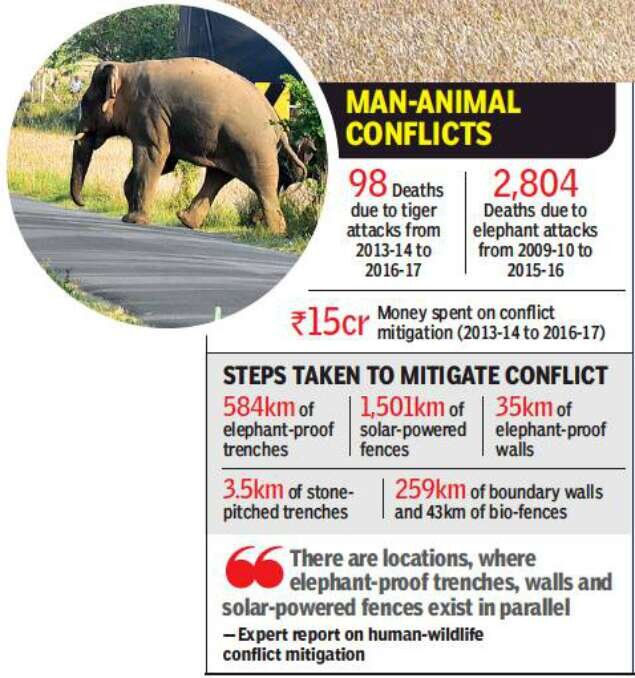Biodiversity & Environment
Seed Bombs: Solution to Man-Animal Conflict
- 14 Aug 2020
- 4 min read
Why in News
Odisha’s Athagarh Forest Division has started casting seed balls (or bombs) inside different reserve forest areas to enrich food stock for wild elephants.
- This has been done to prevent man-elephant conflict.
- On the eve of World Elephant Day 2020, the Ministry for Environment, Forest and Climate Change has launched a portal on Human Elephant Conflict ‘Surakhsya’.
- Further, the Government has taken initiative for fodder and water augmentation in forest areas so that animals get food and water in forest areas and not come outside. LiDAR technology is being used for the same.
Key Points
- Villagers who bear the brunt of the elephant attacks have come forward to prepare the bamboo seed balls and scatter them in 38 reserve forests under the Athagarh Forest Division.
- The growth in bamboo plantations is expected to meet the needs of the elephants, which often stray out of the forests and raid human habitations.
- Athagarh Forest Division is one of the worst-hit areas as far as man-elephant conflict is concerned.
- Elephants frequently raid villages coming under Athagarh and Khuntuni range and damage standing paddy crops. Even fruit-bearing trees and vegetable plants are not spared.
- The situation becomes extremely volatile when any human gets killed by elephants.
- In 2019, the division had thrown seed balls using 950 kg of bamboo seeds inside the forest. The survival rate ranged between 50-60%.
Seed Bomb
- A seed bomb is a little ball generally made up of a combination of compost, clay and seeds.
- The compost and clay act as a carrier for the seeds so they can be launched over walls or fences and into inaccessible areas such as wasteland or railways.
- The compost offers nutrients for the seeds to germinate and grow strong during their infancy and the clay binds the seed bomb, making it hard enough not to break when it hits the ground.
- It is used in re-vegetation and reforestation of the fragile ecosystems.
- The plantation technique wherein seed balls are sprayed using aerial devices, including planes, helicopters or drones, is known as aerial seeding.
- Recent Initiatives:
- Udaipur has been chosen for experimenting the seed bombing technique to increase forest cover in Rajasthan.
- The Haryana government has employed aerial seeding techniques to improve green cover in the Aravalli area of the State.
Way Forward
- India has a large population of the tiger, Asian elephant, leopard, sloth bear, gaur and many others. Keeping these animals restricted to a few hundred kilometers of protected areas can be difficult. Thus, coordinated and collaborative conservation actions are required to motivate communities to shift from conflict to coexistence with wildlife.
- Inclusive development with a long-term vision that cares for the environment is a solution to man-animal conflict.







